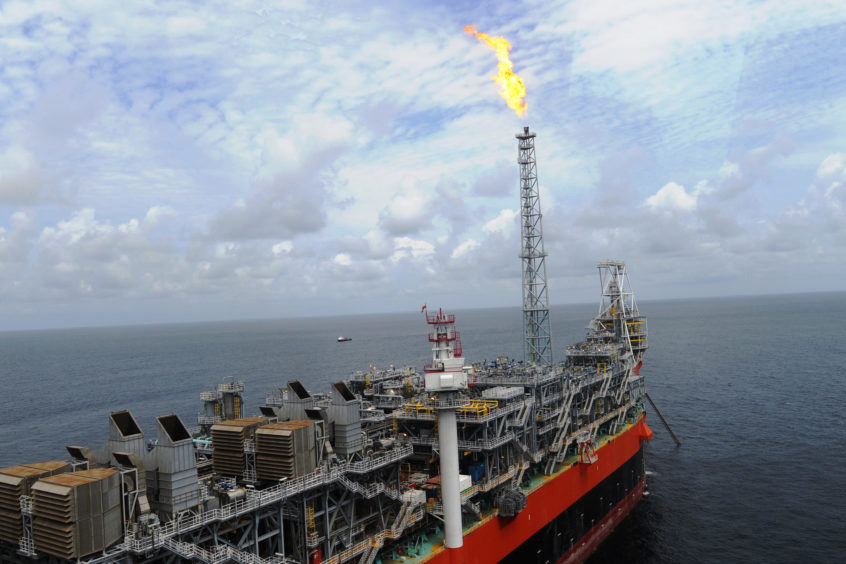
Despite challenges thrown up by the coronavirus outbreak, BP’s production in Africa was largely unchanged, although exploration and development has been pushed back.
BP’s Africa new ventures vice president Jonathan Evans, speaking during an Africa Oil Week (AOW) webinar, said that delays were in the order of six to 12 months. Evans acknowledged this would have an impact on reaching first oil and first gas on projects.
The COVID-19 outbreak threw up two major challenges. Travel restrictions and quarantines have slowed work, while the industry as a whole saw a “dramatic reduction” in demand.
“How quickly will demand come back? Will it ever return?” Evans asked, noting that the question came as BP is shifting towards a new focus on tackling carbon emissions. “Some portfolio choices are coming sooner than we would have thought … we have to make choices about what to continue with and what to stop or get out of.”
The UK super-major has declared it will reach net zero carbon emissions by 2050. As part of this, it has begun factoring in a carbon price equivalent to $100 per tonne as of 2030.
As a result, “only the best quality projects will attract investment, the bar is higher”, Evans said. “That probably means not so many oil projects and certainly not so many heavy oil projects,” he continued. Those oil projects that do go ahead will probably have to involve high production rates and be close to market.
The practical impact will also see BP move away from long-dated frontier exploration. Instead, the company will move into other parts of the value chain, such as the power sector.
Cutting the carbon
The company will continue its focus on its African heartlands, Evans said, of Egypt and Angola. It will also increase its interest in gas, with the executive citing the Tortue LNG project, offshore Mauritania and Senegal, and Mozambique.
While BP is not directly involved in the East African gas projects it has agreed to offtake the entirety of production from Coral Sul FLNG.
“Africa has been a traditional source of exports to the world and that will continue to be the case, but we also see the importance of Africa as a market,” Evans said. The continent’s population and economies are growing, helping drive demand for energy.
“Gas may be seen as dirty, but it’s not as bad as cutting down trees,” Evans said, noting the continent’s current reliance on biomass.
Standard Chartered’s managing director for energy and natural resources Ade Adeola also flagged the prospect of gas as a cleaner fuel than biomass. “A majority of transactions in Africa we see are going into cleaner energy installations for electricity,” Adeola said, noting a “significant uptake” for solar in particular.
The Standard Chartered executive flagged that it was important not to overlook regional differences. The continent is not homogenous, he said. Some states are richly endowed with hydrocarbons while others are not.
BP is also working on plans to produce energy more efficiently. The official noted a potential shift to electric drive equipment on offshore platforms, possibly driven by power generated onshore. “One of the things we are looking at is, what will it take for a negative carbon project? That’s reimagining energy.”
External drivers
The European Union is in talks on the possibility of imposing a carbon border tax. While the details are still unclear, this could be imposed on energy imports and would be relevant to production in West Africa and Algeria.
“That’s a key policy that has to be monitored. It can be an opportunity for projects to demonstrate their low-carbon credentials. Some may be more differentiated than others,” said Wood Mackenzie’s head of markets and transition in the Americas David Brown.
The WoodMac analyst highlighted the shift from exports to meeting domestic demand for African hydrocarbons. “Gas is an ideal source for energy in Africa,” Brown said. Some steps, such as expanding the use of take or pay and bolstering infrastructure would accelerate such a move.
Wärtsilä’s director of growth and development Ville Rimali said it was not necessary for African power to follow the path laid down through the industrialisation of other continents. “There is a chance to do something different, although it’s a cost issue as well and a need to quickly get more power.”
Rimali cited the African Development Bank’s (AfDB) policy for baseload investment. The bank is backing renewables and gas-fired generation. Power generators can reduce gas provision in future as it becomes less needed.
